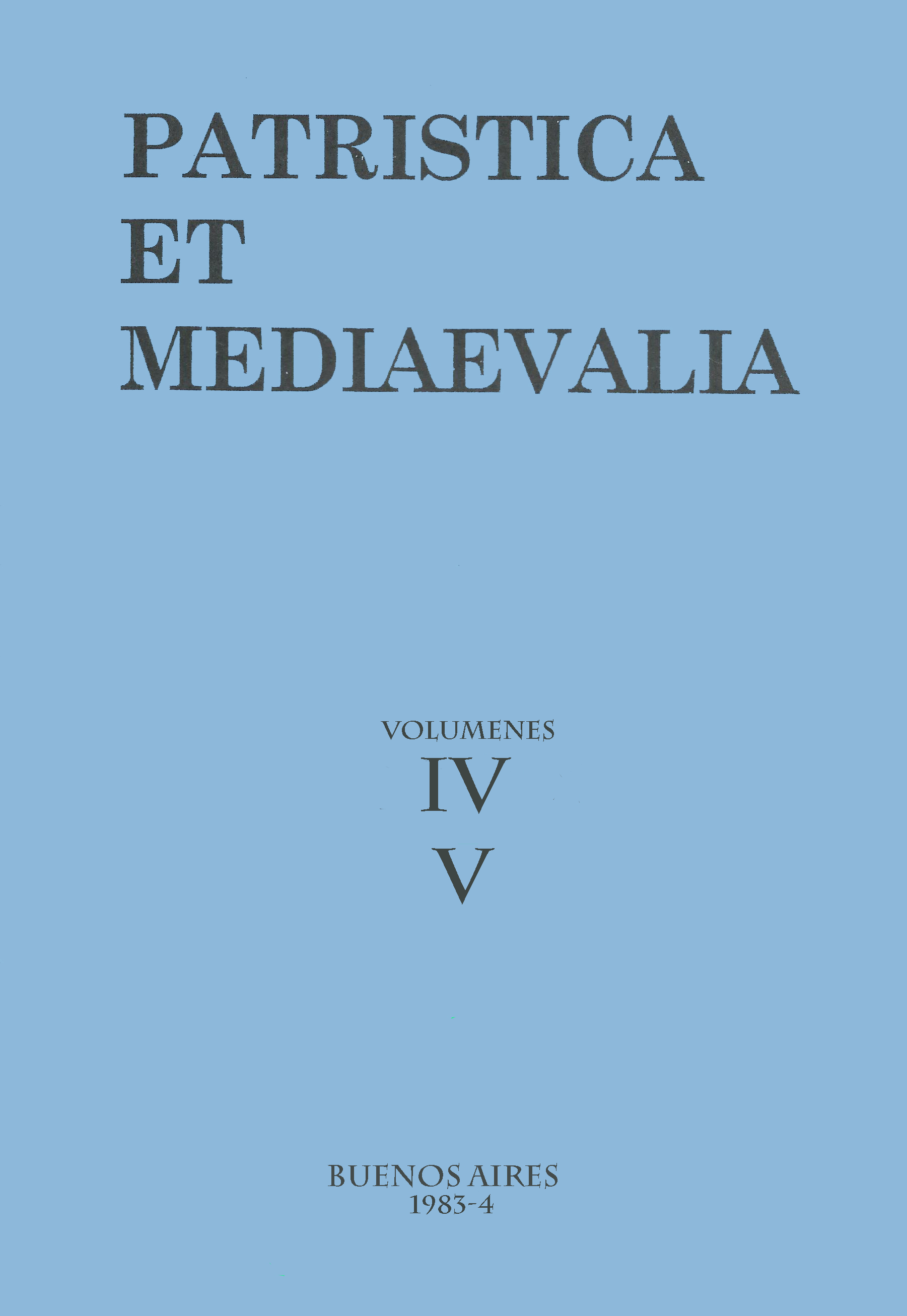“Constitutum Constantini” y “Romgedanke”. La donación constantiniana en el pensamiento de tres defensores del derecho imperial de Roma: Dante, Marsilio de Padua y Guillermo de Ockham (2da parte)
Resumen
En esta segunda parte del trabajo, dedicada a Marsilio de Padua, se analizan los siguientes puntos: la primera parte, centrada únicamente en el texto del Defensor Pacis, trata de determinar el valor que para Marsilio supuso la dominación política del Imperium Romanum en el mundo. La segunda parte –siempre en el Defensor Pacis– trata de establecer si esta dominación reinó entonces en la península o si hubo alguna otra causa en el origen del poder romano. La tercera parte, extendiendo el análisis al Defensor menor, busca aclarar el origen de la legitimidad que Marsilio atribuye al Imperium Romanum mostrando que el nombre de Roma y su figura política imperial –cuyo lugar apenas se esbozó dentro del sistema político de Marsilius en el DP– encuentran en el DM el lugar y la dimensión que les son propios. En cuarto lugar, por último, toma en consideración el valor que para Marsilio tiene el ideal de Roma (es decir, el Romgedanke) en los tres tratados, y lo confronta con el papel que, frente a este mismo ideal, juega la Donatio Constantini en su pensamiento. Aquí surgen las diferencias entre Dante y Marsilio. Emergen no sólo a través de sus respectivas doctrinas políticas, sino también en sus concepciones de la Historia. El romanticismo de Marsilio está totalmente desprovisto de un carácter providencial y se transforma en un romanticismo secular, mientras que la donación aparecerá como una prueba más de que las reivindicaciones hegemónicas del Papado tienen su fundamento exclusivo en un acto histórico que siempre depende de la facticidad de la voluntad humana. Romgedanke y Donación Constantini, dos figuras aparentemente contradictorias y antitéticas, se encuentran así en Marsilio sin choque ni fractura (como fue el caso en el florentino). Marsilio logra reconciliar las dos figuras mediante una inteligente interpretación del acto constantiniano. [Este trabajo es la segunda entrega de las tres partes del artículo. Para ver la primera: vol. 3 (1982), para ver la última: vol. 6 (1985)]Descargas
1. Los/as autores/as que publiquen en esta revista aceptan las siguientes condiciones:
-
Conservan los derechos de autor/a y ceden a la revista el derecho de la primera publicación, con el trabajo registrado con Licencia Atribución-CompartirIgual 4.0 Internacional, que permite a terceros utilizar lo publicado siempre que mencionen la autoría del trabajo y a la primera publicación en esta revista.
-
Pueden realizar otros acuerdos contractuales independientes y adicionales para la distribución no exclusiva de la versión del artículo publicado en esta revista (p. ej., incluirlo en un repositorio institucional o publicarlo en un libro) siempre que indiquen claramente que el trabajo se publicó por primera vez en esta revista.
-
Tienen permitido y se les recomienda publicar su trabajo en Internet (por ejemplo en páginas institucionales o personales).
2. Condiciones de auto-archivo. Se permite y se anima a los/as autores/as a difundir electrónicas la versión post-print de sus obras ya que favorece su circulación y difusión y con ello un posible aumento en su citación y alcance entre la comunidad académica. Color RoMEO: azul.













